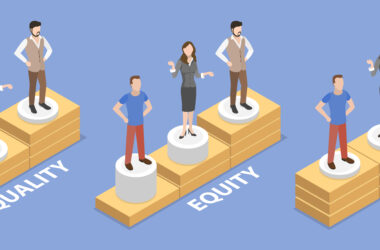Global health equity remains a persistent challenge, underscored by the alarming number of zero-dose children – infants who receive no routine immunizations. These vulnerable groups disproportionately bear the burden of preventable diseases, hindering community development and perpetuating a cycle of ill health. Addressing this crisis requires innovative solutions that can reach the most marginalized populations.
This blog offers an in-depth report on the growing zero-dose crisis and ways we can overcome it.
The Role Of AI In Immunization For Overcoming Barriers
Traditional immunization efforts have been greatly hindered by a complex interplay of factors. This includes geographical remoteness, coupled with economic hardship, has made vaccine access a distant reality for many. Moreover, the spread of misinformation and the fragility of healthcare infrastructures in some areas have further aggravated the challenge of achieving widespread immunization. To address these obstacles, a revolutionary approach is imperative.
On this line, artificial intelligence (AI) offers a promising path forward. By meticulously analyzing a vast collection of data, AI can outline the underlying causes of low immunization rates, empowering healthcare systems to develop targeted interventions. This data-driven approach have the potential to transform immunization strategies, ensuring that vaccines reach those who need them most.
Expanding Access And Global Equity Through AI
AI holds the promise of transforming immunization by making vaccines more accessible and equitably distributed. By leveraging AI-powered tools and platforms, healthcare systems can proactively identify vulnerable populations at risk of vaccine-preventable diseases. This enables targeted resource allocation, ensuring that limited supplies and personnel are deployed where they are needed most. Additionally, AI can bolster primary healthcare infrastructure by optimizing appointment scheduling, inventory management, and patient reminders. To complement these advancements, AI-driven digital training programs can equip healthcare workers with the necessary skills and knowledge to administer vaccines confidently and competently, ultimately improving immunization rates and public health outcomes.
Ethical AI For A Healthier Future
While promising, the integration of AI into healthcare is not without its complexities. Ethical considerations form a critical cornerstone of this integration. Ensuring data privacy, mitigating algorithmic biases, and maintaining transparency are paramount. To harness AI’s entire potential while safeguarding patient interests, robust governance frameworks must be established. These frameworks should prioritize accountability, explainability, and fairness in AI systems. Addressing these challenges proactively is essential to building public trust and realizing the benefits of AI in healthcare.
Global Collaboration For Impact
To fully unlock AI’s potential in addressing global health disparities, a concerted international effort, like dedicated healthcare networks, is paramount. By facilitating open collaboration, countries can pool their data, share best practices, and collectively develop innovative solutions and achieve global health equity. Investing in patient-centric digital health infrastructure, such as universal electronic health records, is essential for creating a foundation for AI-driven advancements. Additionally, the development of open-source AI platforms can democratize access to technology, enabling researchers and healthcare providers worldwide to contribute to and benefit from AI innovations. Through these cooperative endeavors, we can accelerate progress toward a healthier and more equitable world.
The Path To A Vaccine-Protected World
AI offers a powerful toolset for optimizing immunization programs and maximizing resource efficiency. By analyzing vast datasets, AI algorithms can accurately predict vaccine demand, preventing shortages or surpluses. This predictive capability, coupled with intelligent inventory management, can significantly reduce vaccine wastage, a persistent challenge in many healthcare systems. Furthermore, AI can identify operational inefficiencies, streamline workflows, and optimize appointment scheduling, freeing up valuable resources for other critical health services.
The potential of AI to transform immunization is immense. By employing AI responsibly and ethically, we can create a future where vaccines are accessible to all, regardless of location or socioeconomic status. Through enhanced data analysis, predictive modeling, and automation, AI can help close immunization gaps and protect populations from vaccine-preventable diseases. Ultimately, the convergence of AI and immunization promises a healthier world for generations to come and achieve global health equity.
[Also Read: Tracking Environmental Racism’s Impacts With Innovation]











